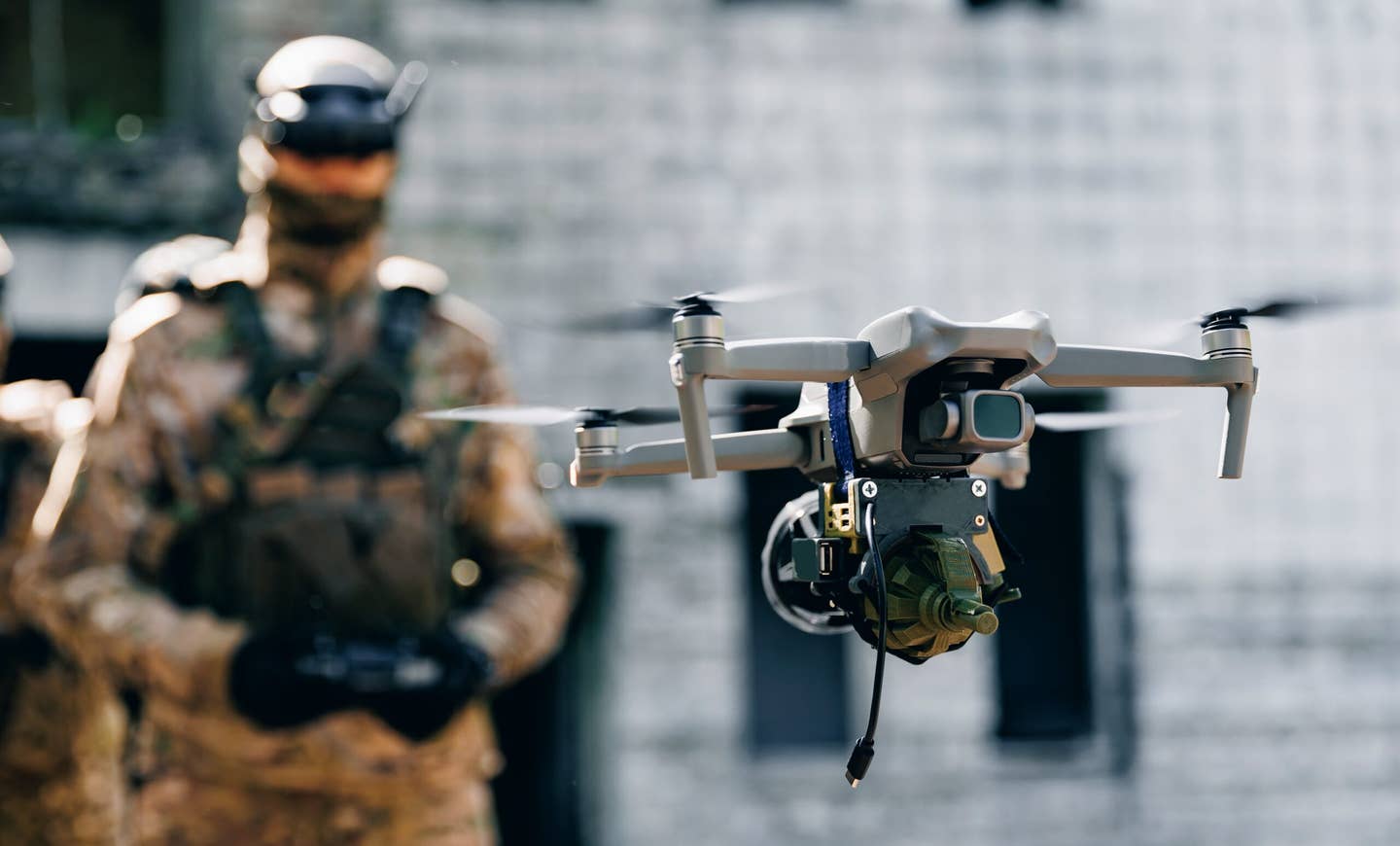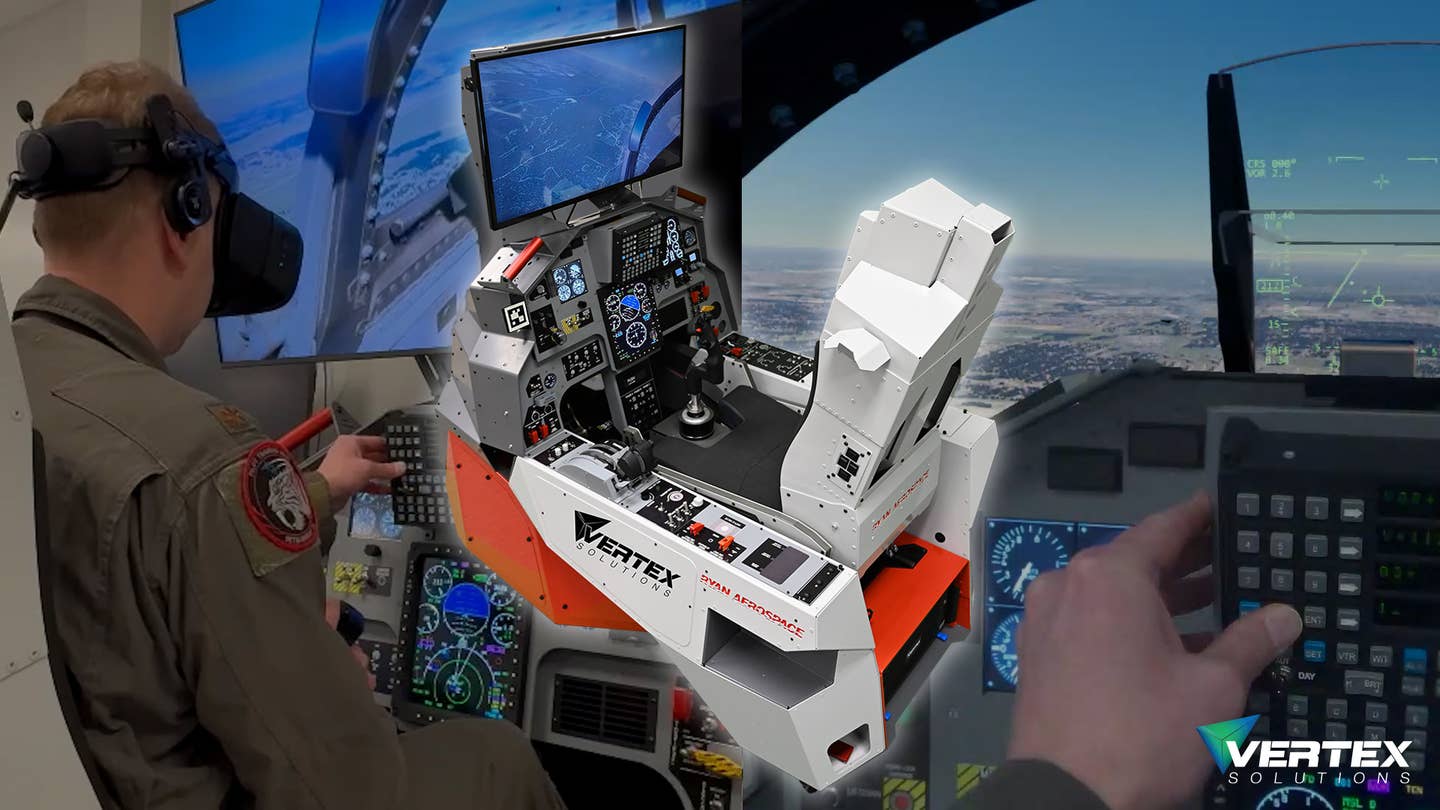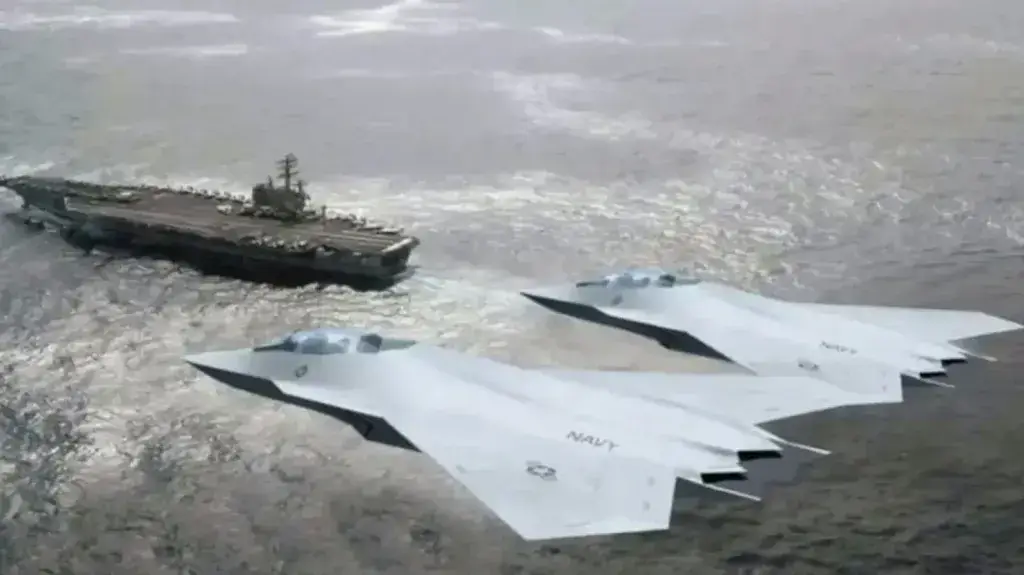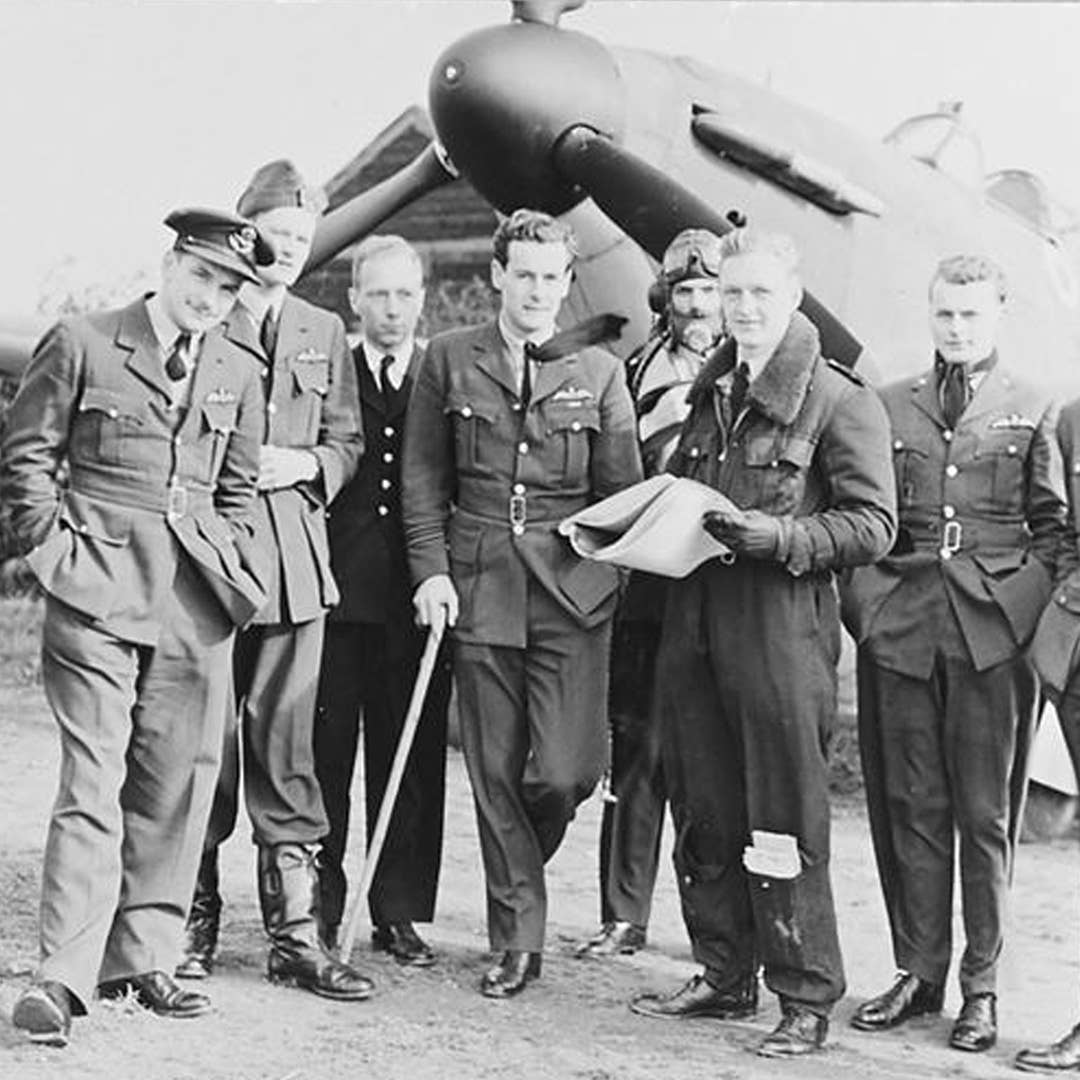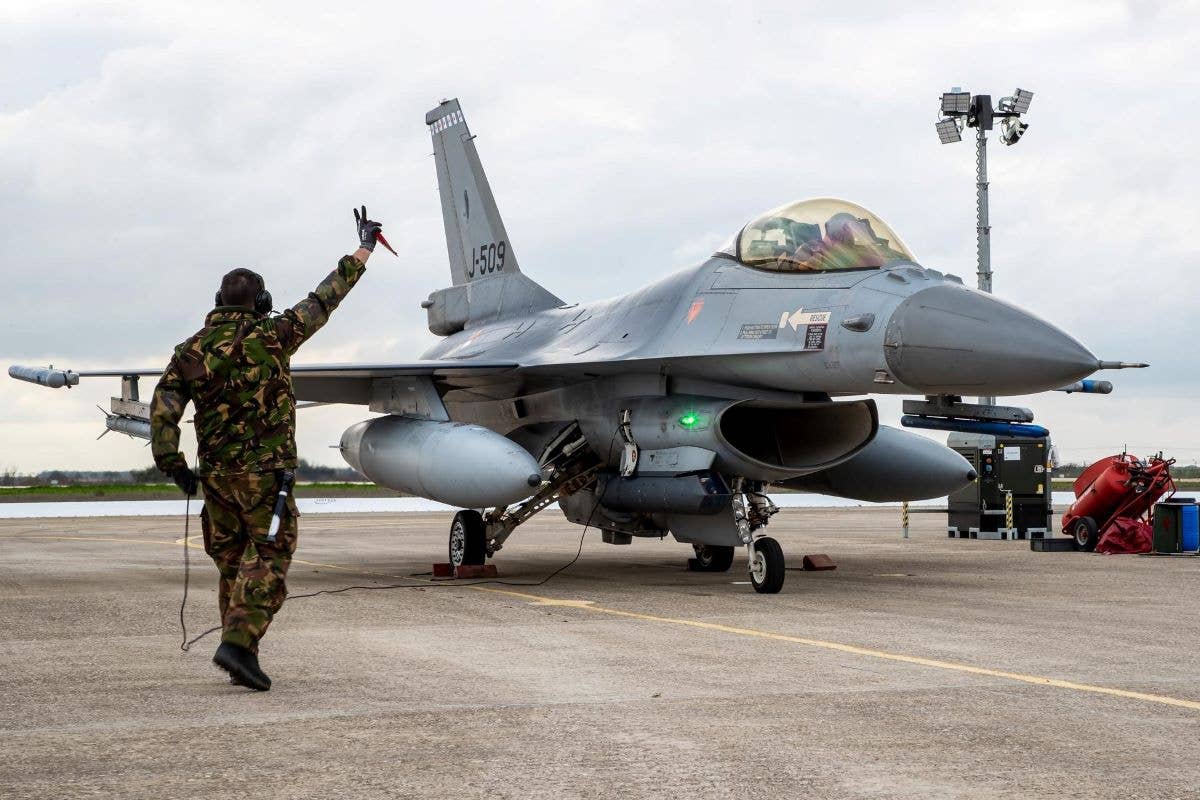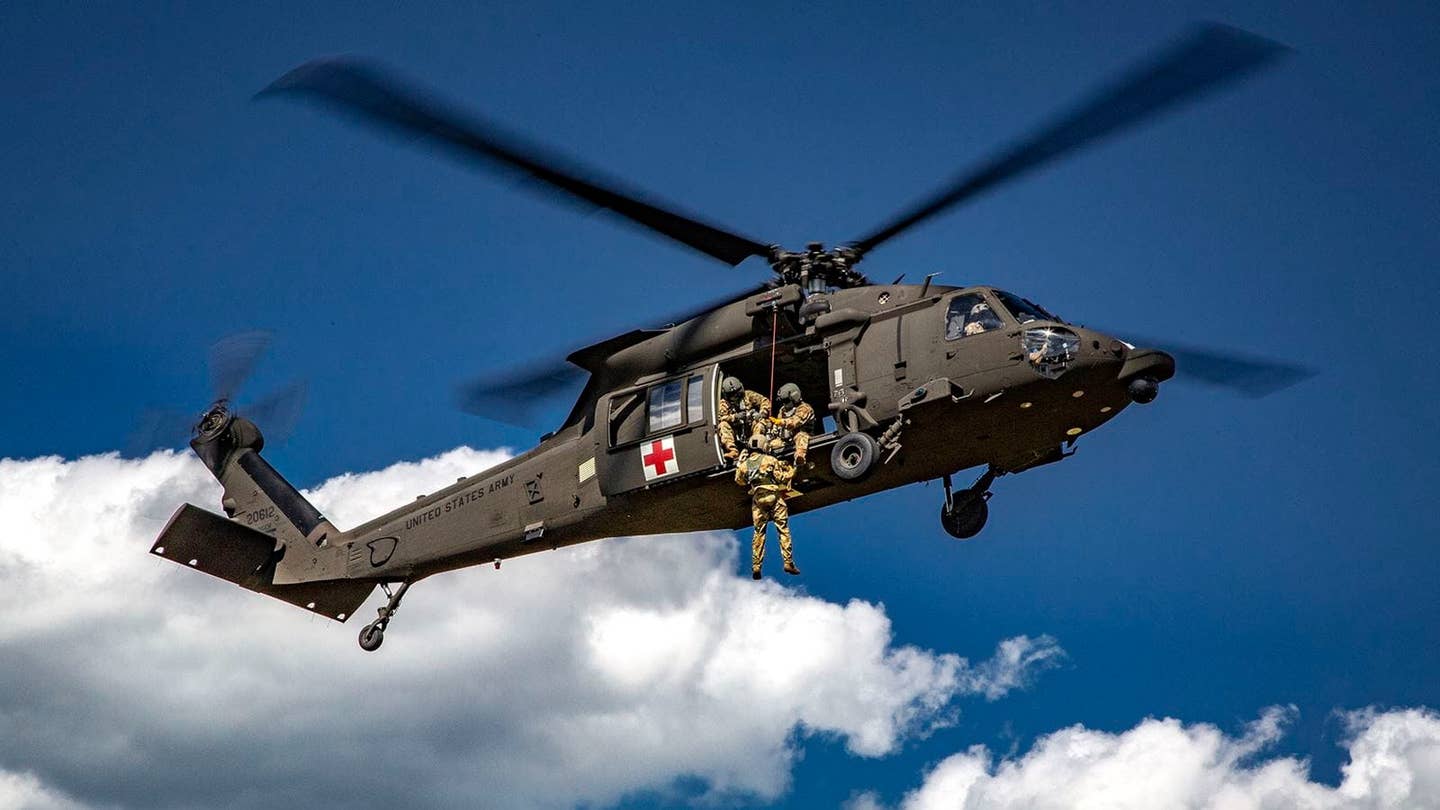Air Force’s T-7A Red Hawk Trainer Completes Extreme Temperature Testing
During the trials, the aircraft’s electronics and instrumentation are evaluated in temperatures ranging from 110 degrees to minus-25 degrees Fahrenheit.
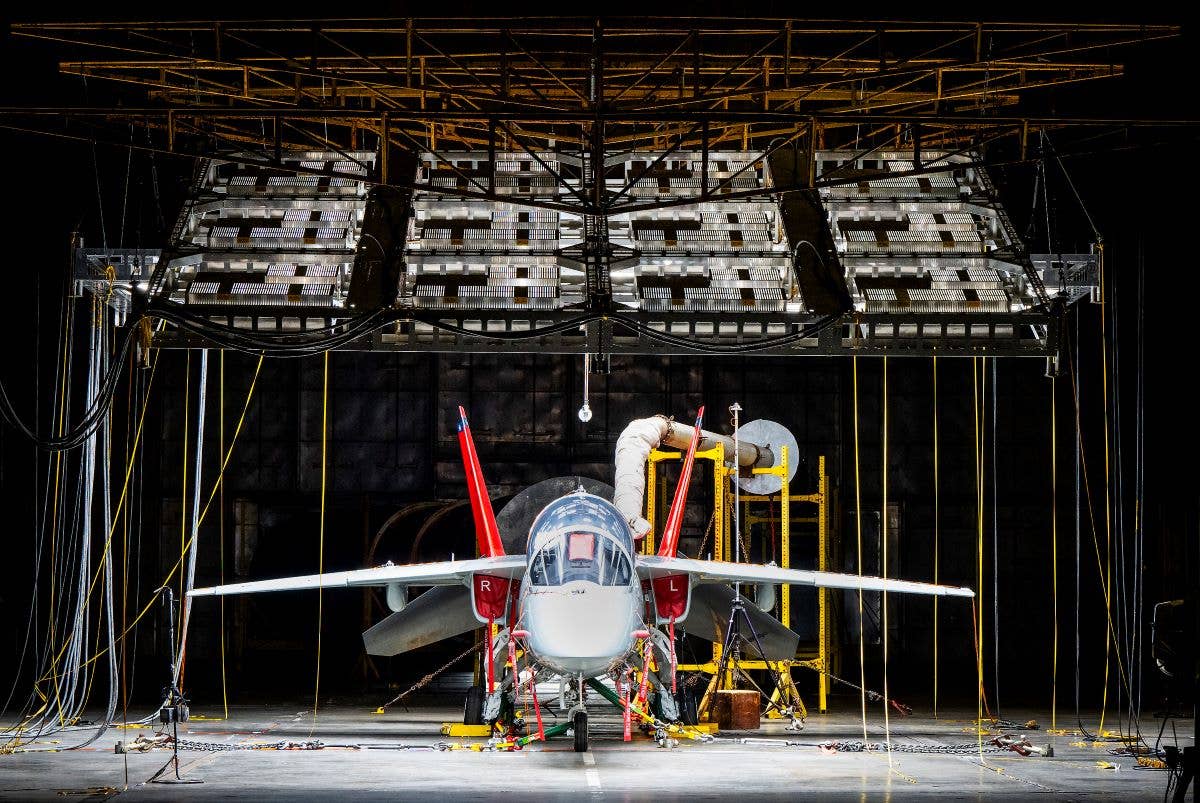
A T-7A Red Hawk sits under bright lights used to create heat in the McKinley Climatic Lab at Eglin Air Force Base, Florida. The tests evaluated how the aircraft, its instrumentation, and electronics will fare under the extreme conditions in the operational Air Force. [Courtesy: U.S. Air Force]
The U.S. Air Force’s new Boeing T-7A Red Hawk advanced trainer has completed an extreme temperature trial to test its endurance from hot deserts to deep-freeze conditions.
The T-7A, designed to train Air Force fighter and bomber pilots, is set to replace the 1960s-era T-38 trainer. Its iconic red-tail livery honors the Tuskegee Airmen of World War II, the U.S. Army Air Forces’ first Black aviation unit.
“We need to know the T-7A can operate in the environmental conditions it will encounter at pilot training bases around the country,” Troy Hoeger, chief development tester for the T-7 with the Air Force Lifecycle Management Center (AFLMC), said in a statement.
The Air Force began a series of trials late last year at the McKinley Climatic Lab at Eglin Air Force Base, Florida, to verify the aircraft's functionality during periods of extreme weather.
On Friday, the aircraft concluded a monthlong trial, testing its endurance in heavy humidity conditions, as well as in temperatures ranging from 110 degrees to minus-25 degrees Fahrenheit.
To perform the tests, lab professionals created and re-created extreme weather environments before performing system operations and engine runs.
The lab's mission is to ensure the aircraft have been proven in extreme weather conditions before pilots use them in the field, according to flight chief Melissa Tate.
"McKinley Climatic Laboratory maintains quickness and technical proficiency by retaining our own staff of highly experienced welders, machinists, electricians, instrumentation experts, test assembly personnel, and refrigeration operators,” Tate said.
The Air Force’s $9.2 billion purchase of the Boeing advanced trainer includes 351 T-7A jets, 46 simulators, and support.

Sign-up for newsletters & special offers!
Get the latest FLYING stories & special offers delivered directly to your inbox

